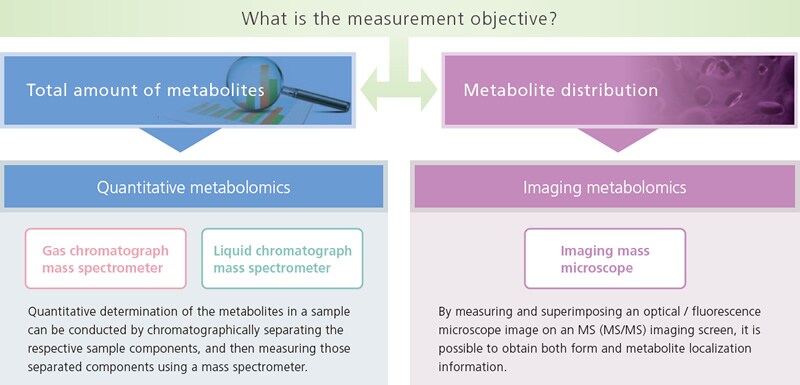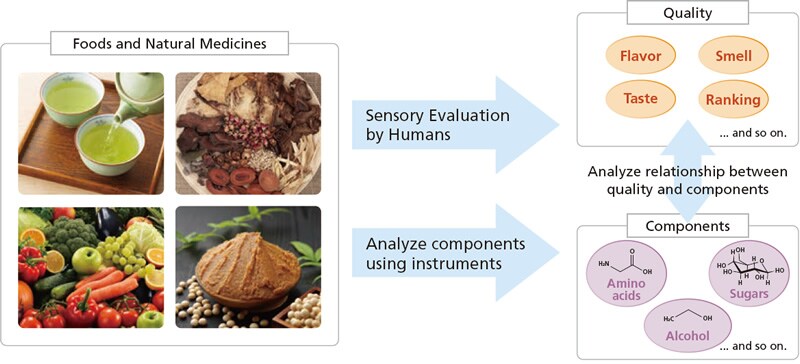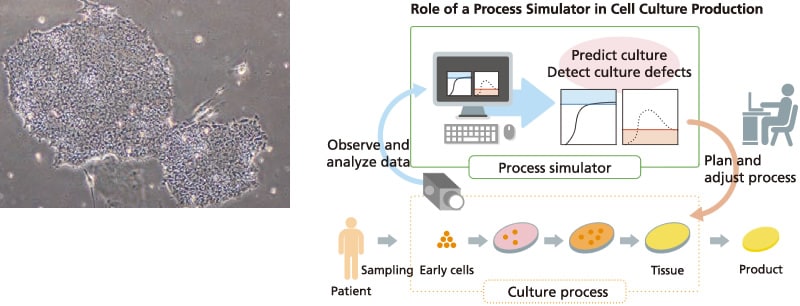

Metabolomics is a technique for comprehensively investigating the phenomena associated with life in living organisms by detecting and analyzing all the varied metabolites generated from biological activities. Metabolites represent information about the last step in the process of genetic expression. Because they are closer to the expression of living organisms than genes and proteins, they more directly reflect the steadily changing phenomena of activities associated with life. Consequently, metabolite applications are being researched in a diverse range of fields, such as clinical medicine, pharmaceuticals, foods, the environment, and chemistry. On the other hand, metabolomics, which involves a mixture of life sciences, organic chemistry, analytical chemistry, and information science, is a new field that is still in its infancy in terms of developing technologies and operating methods. The Osaka University and Shimadzu Analytical Innovation Research Laboratory was established to research and develop applications that use pretreatment, analytical, or data analysis methods essential for metabolomics, including a newly developed data analysis platform.
Quantitative metabolomics involves homogenizing the sample, measuring the total metabolite quantity, finding differences between groups, and detecting metabolite candidates (or marker candidates) that cause such differences. Imaging metabolomics involves using thin sample slices to measure information about the distribution of marker candidates on the sample surface.




In the food industry, metabolomics is used for a wide range of applications, such as to improve the taste or smell of foods, develop new functional foods, improve the quality of fermented foods, or develop more sophisticated technologies for raw materials, processing, storage, and distribution. Such research activities address issues with further improving various technologies and techniques, such as how to pretreat samples, how to measure samples with analytical instruments, how to analyze data, and how to analyze the relationship between quality and components. The aim of the Analytical Innovation Research Laboratory is to promote the widespread use of metabolomics in the food industry by developing a spectrometer-based data analysis platform and researching the use of the platform to improve and control the quality of foods.


In addition to basic research, cell cultures are used in the manufacturing of raw drug substances, such as antibody drugs and vaccines, and have also attracted significant interest for use as a raw material in regenerative medicine. Therefore, quality control of cell cultures is becoming increasingly important; this requires establishing control methods for cultivation processes and quality control methods for cells. The Analytical Innovation Research Laboratory is performing research aimed at establishing quality control and evaluation methods for cell cultures that involve using mass spectrometers to monitor variations in the metabolites in culture media components or cell secretions.
